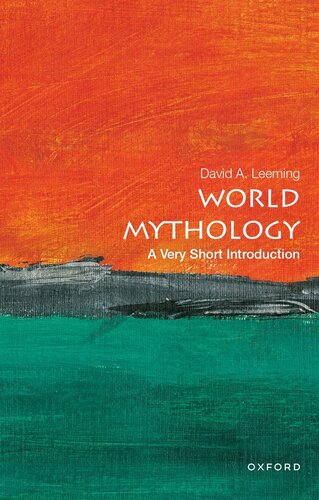

Most ebook files are in PDF format, so you can easily read them using various software such as Foxit Reader or directly on the Google Chrome browser.
Some ebook files are released by publishers in other formats such as .awz, .mobi, .epub, .fb2, etc. You may need to install specific software to read these formats on mobile/PC, such as Calibre.
Please read the tutorial at this link: https://ebookbell.com/faq
We offer FREE conversion to the popular formats you request; however, this may take some time. Therefore, right after payment, please email us, and we will try to provide the service as quickly as possible.
For some exceptional file formats or broken links (if any), please refrain from opening any disputes. Instead, email us first, and we will try to assist within a maximum of 6 hours.
EbookBell Team

0.0
0 reviewsThe mythologies of the world are collective cultural dreams, and as such should be analyzed first from cultural perspectives. How do myths of the ancient Egyptians or Greeks, for instance, reflect the realities of the Egyptian and Greek cultures? When compared, however, mythologies reveal certain universal themes or motifs that point to larger trans-cultural issues such as the place of the human species in creation or the nature of deity as a concept.
World Mythology: A Very Short Introduction is organized around the universal motifs: Creation, the Flood, the Hero Quest, the Trickster/Culture Hero, the Pantheons, the High God, the Great Goddess. Veteran mythology scholar David Leeming examines examples of each motif from a variety of cultures—Greek, Egyptian, Norse, American Indian, African, Polynesian, Jewish, Christian, Hindu—treating them as reflections of the cultures that "dreamed" them. He compares and analyzes them, exposing their universal significance.
This book treats myths from all parts of the word, first from a cultural and then from a more comparative perspective. How do myths of the ancient Egyptians or Greeks, for instance, reflect the realities of the Egyptian and Greek cultures? When compared, how do they reveal certain universal themes or motifs that point to larger transcultural issues, such as the place of the human species in creation or the nature of deity as a concept?This book is organized around the universal or near universal motifs: deities, creation, the flood, the trickster, and the hero. Myths from Greek, Egyptian, Norse, Native American, African, Polynesian, Jewish, Christian, Hindu, and other cultures are retold and treated as reflections of the cultures that "dreamed" them and then are compared and discussed in such a way as to expose universal significance, creating a world mythology.